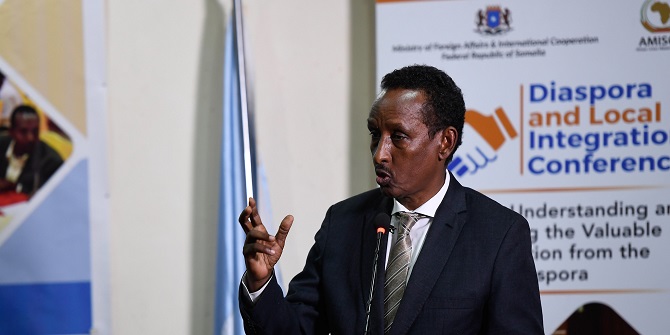
Diaspora communities that originate in Asia, Africa and the Middle East, and are based in the West, have traditionally played a vital role in the social, political, economic and cultural affairs of their homelands. These communities have often emerged as a result of forced displacement, the outcome of crises in the homeland, and especially conflict. Having established themselves, more or less, in the so-called host country, members of the growing diaspora communities, whose roots can be traced mainly to the later decades of the twentieth century, could now turn to support their compatriots that had stayed behind. They have become a primary source of income for the families, sending them remittances from their work in Western Europe, North America and Australia. These remittances have contributed significantly to the economic development of the homelands, mainly through government taxation. They have lobbied for their homeland. Diaspora volunteers have returned to the homeland in times of crisis. And at other times, they have taken part in peace processes (either as mediators or spoilers).
These aspects of diaspora’s connection with the homeland have gained extensive attention in the field of diaspora studies and by policymakers alike. However, in recent years, the diaspora-homeland relationship has taken a new turn, one which has been usually overlooked in the literature and by policymakers. This aspect is the role of diaspora communities as a transnational civil society. For the younger generation of diaspora communities, contributing to the homeland goes beyond sending remittances or serving as their governments’ political extensions in the host country. For many, it has also meant integrating into the efforts for improving the lives of people in the homeland and participating in different ways through networks, groups and institutions that seek to advance social, political and economic reforms. And indeed, in many countries, one could find diaspora returnees (namely individuals from the diaspora that have relocated, temporarily or permanently, to the homeland) working for non-governmental organisations (NGOs), international organisations, aid relief agencies and governments holding positions that enable them to contribute to changes in governance and society. Consequently, these young diaspora returnees and volunteers have become conveyer belts of ideas, strategies of operation and amplifiers of the demands of their compatriots in the homeland.
The purpose of my research project as part of the Conflict Research Programme (CRP) has been to address this topic and explore in detail diasporas as a transnational civil society. In this respect, the project corresponds with the CRP’s focus on the idea of human security and the concept of civicness. Diaspora communities’ participation in civil society campaigns, advocacy networks and generally in efforts to reform governance, politics and society covers a broad range of topics that affect the well-being of the citizens of their homelands. As part of this project, I have tried to answer several questions: What motivates diaspora communities to join civil society networks, political advocacy campaigns or any other form of action that aims to better the lives of people in the homeland? What kind of ideas, strategies and modes of operation do diaspora communities and returnees carry with them to the homeland? How do they interact with local policymakers? And perhaps most importantly, does coming from the diaspora give any advantages for returnees in their effort to bring in a change in the homeland? On the other, what are the unique challenges that diaspora returnees face in their work and activism? And how do they overcome these challenges?
To answer these questions, I have focused on three case studies of diaspora communities’ involvement in the homeland: The Kurdish diaspora community from the Kurdistan Region in Iraq; the Somalilander diaspora from Somaliland; and the South Sudanese diaspora. The reasons for selecting these particular case studies vary: there are similarities in the circumstances of these homelands and in the emergence of their diaspora communities in the West; and the fact that substantial communities from all three homelands are concentrated in the United Kingdom. In each of the cases, 25 interviews were carried out. This number is not a representative sample of diaspora returnees. Nonetheless, it has provided me with a wide range of interviewees, with different backgrounds, experiences and ways of serving as agents of change. The criteria set for selecting interviewees were: Possession of Western citizenship; and affiliation with an organisation, group, network, movement or even a political party that seeks to advance social, political and economic changes in the homeland. Affiliation has meant both salaried, i.e. as employees, and voluntary. Interviewees have included NGO and international organisation employees/volunteers, independents activists, founders of charity networks and organisations, journalists, educators, artists, civil servants and private entrepreneurs (although the latter category was narrowed to one interviewee in each case). The interviews were frontal and semi-structured and revolved around a set of open-ended questions.
The study has come up with some interesting findings of the nature of diaspora transnational civil society activism. They are presented below, sorted according to several categories that overlap with the questions presented to the interviewees:
- Societal challenges in the homeland: The needs and challenges that diaspora returnees and contributors identify in the homeland are very much influenced by their own experiences and understanding of what constitutes the backbone of society. Thus, most interviewees identified limited access to education opportunities, social divisions (ethnic, tribal, religious), lack of transparency and corruption (though the word democracy was hardly used by interviewees), poor infrastructure – including in the health sector, and gender inequality (almost exclusively brought up by female interviewees) as the most urgent problems of society in the homeland faces. On the other hand, interviewees made fewer references to food and water insecurity.
- Motivations for activism/work in the homeland: The NGO sector, as well as the civil service, are often portrayed as lucrative employment opportunities, in which diaspora returnees may have advantages over the local populations. However, most interviewees noted that their reason for returning has been the desire to contribute to the homeland and bring with them the experiences that they acquired in the West. Working for NGOs or in the civil service has been perceived as the best way to achieve these changes, and not as an attractive job opportunity. Most have emphasised that they have had much better prospects of thriving economically in their host countries. Only a minority of the interviewees admitted to having chosen careers in the sectors mentioned above for the purpose of livelihood.
- Experiences in the host country: For the interviewees that have returned to the homeland, many of them had gained earlier experience in fields that they are now engaged within the homeland. They have acquired this experience either in the host country or in other parts of the world. Others had experiences of volunteering and aid in different areas. A relative minority had their experience in the private sector.
- Types of work/activism in the homeland: Most interviewees have been involved with capacity-building and training. A minority of the interviewees had the opportunity to advocate their ideas directly and causes to the higher echelons of policymakers. A smaller minority were policymakers. The reasons for this reality are varied: The expectation of funders/employers; lack of networks; occasional hostility on the side of the local population (‘stayees’), causing hesitation and insecurity among returnees.
- Advantages of returning from the diaspora: Interviewees were asked to reflect on the possible advantages that coming from the diaspora may have had for their participation in activism and work in the homeland. The vast majority of interviewees counted among their main advantages their exposure to different cultures and ways of thinking, greater open-mindedness in comparison to the stayees, willingness and ability to learn from others, and better education and training. Some have seen themselves as better equipped to work with foreigners, and especially NGOs. Others compared themselves to foreign aid workers and suggested that their knowledge of local languages and cultures makes helps to identify local needs better than international NGOs.
- Disadvantages: On the other hand, the research has also assumed that diaspora activists will face particular difficulties. In reply to questions concerning these challenges, interviewees have stated primarily hostility on the side of stayees, stemming from jealousy and fear for their employment. The possession of Western passports and time spent outside of the homeland has led stayees to question the loyalty of the returnees. As noted above, this has often led to insecurity and hesitance among returnees. Alternatively, it has also motivated returnees to excel in their work and prove their commitment to the homeland. Another recurring problem, which has driven many returnees to leave and go back to their host countries, is the inability to adjust to the homeland, either in terms of living condition or culture – political and social.
Notwithstanding the challenges facing them, the majority of interviewees have seen their return as an overall advantage for their aspiration to bring about change. They have highlighted various ways in which they have affected the homeland, starting from reforms and legislation at the national level, through introducing new norms of conduct in their organisations and among their colleagues, to transforming the views and ideas of their immediate environment. As such, they have seen the return of diaspora to the homeland as a desirable process, which their governments and international organisations should encourage and facilitate.
Based on this study, several policy recommendations should be considered by interested parties, including governments in the homeland, governments in the host countries, donors and international organisations:
- International organisations, NGOs and donors could benefit from the return of highly-motivated and often highly-qualified members of the diaspora. The latter could serve as conveyor belts of ideas, experience and expertise and as bridges between their host countries and homeland.
- Diaspora returnees should be understood and approached as a group in each homeland, and not as individuals. This is because they are likely to experience similar challenges and benefit from the same advantages.
- International organisations, sender governments, and donors should set frameworks to train and organise diaspora returnees, to prepare them better for the challenges they might face, and how they can utilise their experiences to support reforms and political transitions.
- Especially for sender governments, targeting a particular group and highlighting their connection to the homeland is a sensitive topic. Governments should be aware of the fact that diasporas still view their ‘host countries’ as their homes, and do not seek to detach themselves from them.
- When employing returnees, international organisations and NGOs should encourage them to go beyond capacity-building and training and turn to direct advocacy.
- Authorities in the homeland should develop or create institutions to support diaspora returnees and benefit from their knowledge and expertise.
- Such institutions should also develop plans to educate workers and employees in the relevant sectors about welcoming diaspora returnees.
At this point, it is necessary to state that civil society networks and initiatives do not, and cannot, rely exclusively on returnees. Although diaspora returnees are important to such initiatives and can have a valuable, even crucial contributions to reform and protest movements, this contribution could only be relevant when there are established local networks and initiatives in place. The presence of open-minded, qualified and enthusiastic individuals and groups, could mainly benefit campaigns for long-term social, political and economic advancements.
Note: The CRP blogs gives the views of the author, not the position of the Conflict Research Programme, the London School of Economics and Political Science, or the UK Government.





